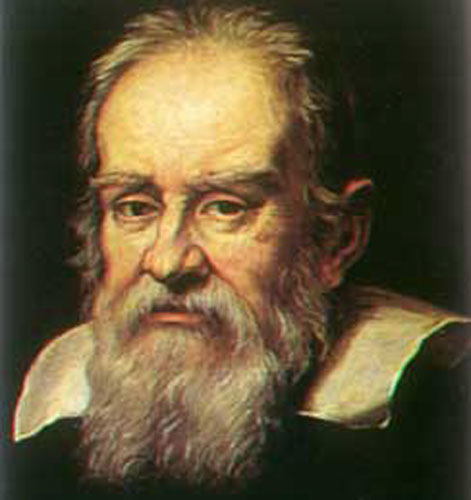So we're a clever community (cough). But some people are really clever. I'm going to give you a few examples of people so clever they make foxes look stupid. And there is a particular quality to their cleverness that I admire; it's that sort of "pulling a rabbit out of a hat" thing. I hope you'll see what I mean.
 First off the blocks is Carl Friedrich Gauss (1777 – 1855). When he was in elementary school aged 10 the teacher, probably wanting a bit of peace and quiet, set the class a problem. Take all the whole numbers from 1 to 100 and add them up (i.e. 1 + 2 + 3 + 4 + 5 and so on up to 100). Since this involved 99 separate additions, he should have been able to count on 20 to 30 minutes of peace, but Gauss raised his hand almost immediately and said that the answer was 5,050.
First off the blocks is Carl Friedrich Gauss (1777 – 1855). When he was in elementary school aged 10 the teacher, probably wanting a bit of peace and quiet, set the class a problem. Take all the whole numbers from 1 to 100 and add them up (i.e. 1 + 2 + 3 + 4 + 5 and so on up to 100). Since this involved 99 separate additions, he should have been able to count on 20 to 30 minutes of peace, but Gauss raised his hand almost immediately and said that the answer was 5,050.It is the simplicity of his method that reflects his genius. He realised that the 100 numbers could be arranged in 50 pairs as follows: 1 and 100, 2 and 99, 3 and 98, 4 and 97 all the way down to 50 and 51. Since each of the pairs adds up to 101, then the answer will be 50 times that, viz., 5050. Now that's clever.
 And how about Isaac Newton (1643 – 1727)? He was probably one of the cleverest people who has lived.
And how about Isaac Newton (1643 – 1727)? He was probably one of the cleverest people who has lived.I mean, how many of us can do the calculus? Quite. Now imagine inventing the calculus just so you can get on with the problems that interest you. Well, that's what he did. And it's the breadth of his contributions that bowls me over - the law of gravity and the explication of planetary motion, mechanics, optics and as we have seen mathematics, including the "Principia Mathematica", his most important work.
I used to live in Cambridge, and it would give me goose bumps to walk around Trinity College, knowing I could reach out and touch him, but for a few hundred years.
I think what makes him really clever was how he dealt with apparently simple things (a bit like Gauss). For example we've all seen rainbows, or witnessed the colours scattered by a chandelier. But Newton did the experiments to show that all the colours were in white light. And he did it so simply.
He just closed the curtains in his room in Cambridge, allowed a chink of light through, split that into colours with a prism, arranged a second prism to collect the light again, and recombined it back into white light. Any one of us could have done that ... but it took a genius to actually do it, and realise the significance of what he was doing.
Next in my list of reasons to be amazed: We've all grown up with the idea that Earth is in the solar system, that it and the other planets revolve around the sun and so on. We also know there was a time when people didn't and thought everything revolved around the Earth instead - which, be honest, is the way it actually looks.

Galileo Galilei (1564 - 1642), a towering genius, also used something simple to change the way we viewed the world and the solar system. He made observations of Venus using a very modest telescope and saw that it had phases, and specifically could appear as a crescent (just as the moon does when it is 'sunward' of us).
Now here's the clever bit. He was smart enough to understand that this could only happen if Venus was orbiting the Sun, and if the orbit of Venus was inside the Earth's. At a stroke he realised that Copernicus and his doctrine of heleocentrism was right.
Alas, the Inquisition forced him to recant this view, and he spent the last years of his life under house arrest.
 Have a look at this amazing daytime image, which is undoctored - but you'll have to click to get a larger view to see the necessary detail. It shows Venus and the Moon in the same phase, and just before the moon overtook Venus in the sky and obscured it.
Have a look at this amazing daytime image, which is undoctored - but you'll have to click to get a larger view to see the necessary detail. It shows Venus and the Moon in the same phase, and just before the moon overtook Venus in the sky and obscured it. Charles Darwin (1809 – 1882) must get a mention. In him we see, once again, the propensity for the genius to look a little more deeply at exactly the same things you or I are seeing. We see that life is diverse; he sees that diversity resulting from natural selection. It's strange that this was so revolutionary, and caused so much controversy and anguish. After all, we have known for centuries that you can artificially select for different characteristics - look at dog breeding for example.
Charles Darwin (1809 – 1882) must get a mention. In him we see, once again, the propensity for the genius to look a little more deeply at exactly the same things you or I are seeing. We see that life is diverse; he sees that diversity resulting from natural selection. It's strange that this was so revolutionary, and caused so much controversy and anguish. After all, we have known for centuries that you can artificially select for different characteristics - look at dog breeding for example. I've saved for last the most spooky example of genius, Albert Einstein (1879 – 1955). He tried to get a teaching post after he graduated and failed. He finally ended up working in the Berne (Switzerland) Patent Office where he was passed over for promotion and didn't even get a permanent post until 1903 when he was 24.
I've saved for last the most spooky example of genius, Albert Einstein (1879 – 1955). He tried to get a teaching post after he graduated and failed. He finally ended up working in the Berne (Switzerland) Patent Office where he was passed over for promotion and didn't even get a permanent post until 1903 when he was 24.In 1905, while still at the patent office, he published four very important papers, including one on special relativity and one on mass - energy equivalence, the famous E = mc2 equation (that's c squared BTW, but can't type it)..
 This is what happens during a nuclear explosion; such an explosion was not to be seen for a further 40 years. The same conversion of mass to energy is going on in the sun, and makes our lives possible. It will keep going for billions of years.
This is what happens during a nuclear explosion; such an explosion was not to be seen for a further 40 years. The same conversion of mass to energy is going on in the sun, and makes our lives possible. It will keep going for billions of years.So my question is how does a humble patent clerk, who has no research grant, no access to laboratories or equipment, and no means to do experiments, arrive at something so earth shattering and actually be right? All at the age of 26? Is that mind boggling or what?
PS: To understand just how dramatic this mass / energy equivalence is, be aware that in the Hiroshima explosion, the mass being converted into energy was the equivalent of a paper clip.
PPS: Newton, who, let's face it, was right about lots of things, said that the world, and I quote "would not end before 2060". If you are young enough, be afraid, be very afraid.


15 comments:
quite a lovely tribute to a great collection of clever guys...operative word is guys! although you did omit one of my favorite smart BOYS, operative word boys...leonardo!!
some women I would honor in such a list may include hildegard of bingen (who I have posted about on the mouse), marie curie, rachel carson, hypatia, and perhaps hannah arendt, maria montessori... just to name a few.
as abigail adams said to john 'don't forget the ladies!'
Mind boggling. Or is that bloggling?
Anyway ... a fine group of smarty pants you have there.
Brilliant post - all about seeing beyond the obvious and taking the taking the obvious and making sense of it in understandable ways.
And now I'm going to go off and sit in a corner...
;-)
mouse, you are absolutely right, and have highlighted what may be an unconscious prejudice of mine. I don't agree with your list though, with the exception of Marie Curie, and I would want to add to it Ada Lovelace.
The others made very significant contributions but don't seem to me to be in the class of say Newton or Einstein.
Having said that I would say two other things. First, pretty well no man who has ever lived is in that class either. Second, I think that the propensity that men have for evil is much greater than that of women, and I mean that.
drowsey - true, but see mouse's post for a more balanced view.
av - yes, it is that seeing beyond the obvious that excited me.
Excellent expose Monseiur! I always felt sorry for Charles Darwin though, his Natural Selection remains a Theory and I always thought that you stated a hypothesis, created a theory, tested it and then it became Law. Maybe I wasn't paying attention in class. Very interesting stuff. (My IQ is way below 100 I believe!) I'm with Mouse also . . behind every great man etc!
Gosh. Feeling a bit stupid now!
Do I detect another unconscious prejudice in that your list only includes scientists?
No philosophers? No men or women of letters? No artists? (Even mouse's contribution of leonardo can be viewed as being another scientist.)
Now you have started you will have to continue. It could prove your life's work. :)
and your cleverness is in disentangling it for us nincompoops. the women, of course, were too busy trying to find stray socks and wondering what to cook for supper to have time to bother with natural selection. Cleverness is strange, as Einstein's position proves, when it is so very specific that he can't be trusted to stick stamps on straight but can come up with relativity. Many very clever people are barely able to function. This is the case at GCHQ it seems where the boffins are given instructions on how to get out of the building since it's beyond their ken. bizarre.
Ah, baino, you've done this to me before, pretending to be a simple antipodean, while all the time running rings around us northerners.
I think that evolution through natural selection probably has to stay a theory. The way I see it a theory is a model of some aspect of reality and one should be able to make predictions from it. You can then do experiments to see if the predictions hold true (or more precisely, see if the null hypothesis can be rejected so that the alternative can be accepted).
However, while you can make predictions from natural selection I don't see how you would do the experiments without it becoming artificial selection. That doesn't falsify evolution through natural selection, which personally I believe in, but I don't see how it can be proved. Maybe it's just me!
Mud - stupid, never, you're doing a baino on us.
dot - good point. The thing that excited me, and led to my selection, was how these dudes seemed to do profound things based on something very simple. It wasn't intended to be an essay on cleverness as such - too broad a scope for me I fear.
milla - exactly right, both about the socks thing and about sticking stamps on straight. mouse got me thinking about this again, and I do wonder if there is any selective advantage in being so bright, given that it is often balanced by staggering incompetence in other areas of life (and hence very blokeish). Feel another post coming on to explore this one.
and um where is my portrait????? xx j
Now that I see what your game is, I think you should add Tim Berners-Lee.
His remarkably simple idea was the World Wide Web and the means of creating it.
We bloggers owe him all.
I agree. We are an intelligent and erudite bunch of bloggers, but we cannot compare to those great minds. Newton does it for me, his laws of motion are so simple, yet so contrary to what we expect. However, they have enabled us to advance further than any other discovery in history. Wow!
Ah janelle, pure oversight, I do assure!
dot - yes, I'd buy that.
working mum - apparently in a survey of scientists, Newton did pip Einstein to the post when it came to deciding who was the most influential scientist ever.
Thomas Edison said 'Genius is 99% perspiration and 1% inspiration'. Well the way I was sweating this morning whilst cutting back the fecking ronces I think I am well on the way to genius-hood. (I did also manage to fix my broken strimmer - that must surely count towards genius status ?) .
Bob
But Bob, you are a bleeding genius, perspiration or no perspiration.
Post a Comment